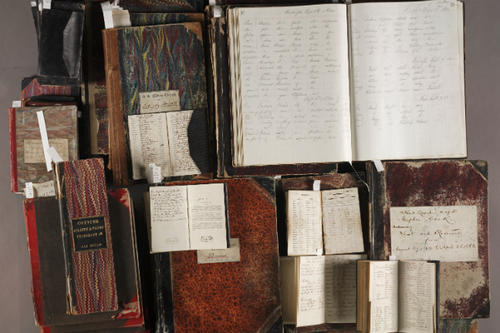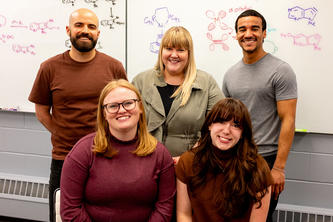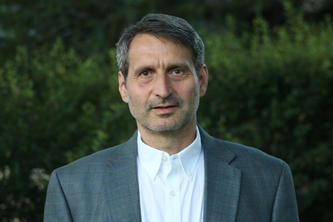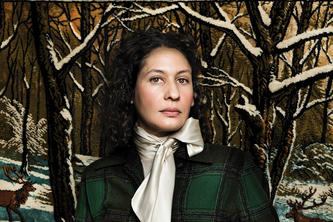
MINNEAPOLIS/ST. PAUL (06/21/16) — The University of Minnesota is part of a national effort led by The Huntington Library, Art Collections, and Botanical Gardens to gain new insights into the U.S. Civil War with an innovative crowdsourcing project. The project involves help from the general public to transcribe and decipher a collection of nearly 16,000 Civil War telegrams between Abraham Lincoln, his Cabinet, and officers of the Union Army. Roughly one-third of the messages were written in code.
The Huntington is collaborating on the Decoding the Civil War project, built and managed by the University of Minnesota through Zooniverse, the largest online platform for collaborative volunteer research. Other partners include North Carolina State University’s Digital History and Pedagogy Project, and the Abraham Lincoln Presidential Library and Museum.
“The Decoding the Civil War project is an exciting example of a historical research project enabled by the crowdsourcing capabilities of the Zooniverse platform and the Zooniverse team at the University of Minnesota,” said University of Minnesota Associate Professor Lucy Fortson, co-founder of Zooniverse and Associate Head in the University’s School of Physics and Astronomy. “The decoding portion of this project is a particularly intriguing aspect for us to work on as it represents a new type of challenge for Zooniverse.”
Crowdsourcing allows researchers to efficiently and effectively comb through large amounts of data using the public’s help. The work usually cannot be done by computers because it requires specific human skills. Other Zooinverse crowdsourcing projects have included using the public’s help to identify black holes in thousands of telescope images and to sort through large numbers of photos from camera traps in the Serengeti.
In this project, The Huntington acquired the exceptionally rare collection of telegrams in 2012, composed of a nearly complete archive of Thomas J. Eckert, the head of the military telegraph office of the War Department under Lincoln. The archive was thought to have been destroyed after the war and includes crucial correspondence that has never been published. Among the materials are 35 manuscript ledger books of telegrams sent and received by the War Department, including more than 100 communiques from Lincoln himself. Also included are top-secret cipher books revealing the complex coding system used to encrypt and decipher messages. The Confederate Army never cracked the Union Army’s code.
The Decoding the Civil War project provides public access to digitized images of the telegrams and code books through the Huntington Digital Library. In addition, the project’s crowdsourcing website on Zooniverse engages “citizen archivists” in the deciphering of the telegrams with greater efficiency and accuracy than could be accomplished by a few staff members at the partnering institutions.
“The Huntington and its partners are delighted to make this vitally important collection accessible to the public in a way that will help improve our understanding of this critically important period in our nation’s history,” said David Zeidberg, Avery Director of the Library at The Huntington. “This is a digital humanities project that holds the potential to transform our engagement with the past, inspire further research, and help students everywhere gain a better understanding of U.S. history, digital literacy, and the power of collaboration.”
The project also provides a decoding activity for classroom students and museum-goers that is connected to Civil War milestones and provides inquiry-based educational modules that can be used to bring history alive. Through the The Huntington’s partnerships with multiple Los Angeles area school districts and with North Carolina State University’s Digital History and Pedagogy Project, the educational modules will be integrated into teacher workshops reaching more than 1,000 teachers of at-risk students.
Built and managed by the University of Minnesota's Zooniverse team, the crowdsourcing project itself has three phases.
In the first phase, underway now, interested volunteers register online to transcribe the nearly 16,000 telegrams line by line, creating an extraordinarily rich database. In the second phase, volunteers will comb the database to identify significant people, dates, and times, enabling the creation of a robust search function. In the final phase, code books in the archive will be used to decipher the encoded telegrams, potentially providing fresh insights into the history of the Civil War.
People interested in participating in the project can register on the Zooniverse website at decodingthecivilwar.org. Once participants have created a user name and password, they can then click on the “Decoding the Civil War” project image and take a brief tutorial that explains the process for transcribing a telegram.
The transcribed telegrams will be openly available to scholars and others interested in telegraphy, cryptography, wartime communications, technology, civilian-military relations, and many other aspects of the U.S. Civil War or American history more generally.
The project is partially funded by a two-year federal grant from the National Historic Publications and Records Commission.
- Categories:
- Science and Technology





